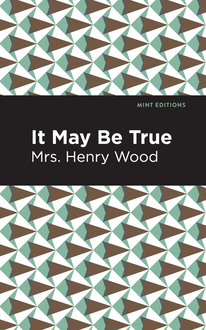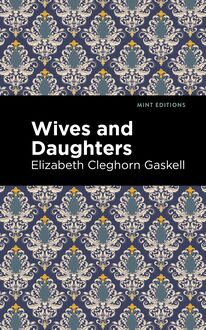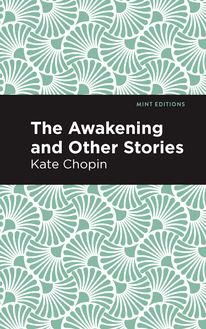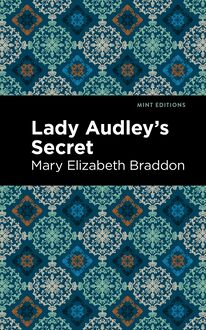-
 Univers
Univers
-
 Ebooks
Ebooks
-
 Livres audio
Livres audio
-
 Presse
Presse
-
 Podcasts
Podcasts
-
 BD
BD
-
 Documents
Documents
-
- Cours
- Révisions
- Ressources pédagogiques
- Sciences de l’éducation
- Manuels scolaires
- Langues
- Travaux de classe
- Annales de BEP
- Etudes supérieures
- Maternelle et primaire
- Fiches de lecture
- Orientation scolaire
- Méthodologie
- Corrigés de devoir
- Annales d’examens et concours
- Annales du bac
- Annales du brevet
- Rapports de stage
La lecture à portée de main
Vous pourrez modifier la taille du texte de cet ouvrage
Découvre YouScribe en t'inscrivant gratuitement
Je m'inscrisDécouvre YouScribe en t'inscrivant gratuitement
Je m'inscrisEn savoir plus
Vous pourrez modifier la taille du texte de cet ouvrage
En savoir plus

Description
A Life’s Secret: A Novel (1862) is a novel by Mrs. Henry Wood. Written towards the beginning of her career as a leading English novelist of the Victorian era, A Life’s Secret: A Novel is a sweeping exploration of class, society, and the dangers of keeping secrets. Blending several literary genres, including mystery and romance, Wood’s novel is a masterful and underappreciated work of fiction that remains essential nearly two centuries after it was published Orphaned at a young age, Austin Clay has found success working for his uncle, a builder. When his uncle dies unexpectedly, the young man moves to London, where he hopes to make a name for himself despite his limited upbringing. There, he meets the young Florence, a twelve-year-old girl whose uncle Clay rescues from a near-deadly accident. As the years go by, Austin and Florence develop a budding romance, but are unable to marry without the approval of her uncle, Mr. Hunter. Meanwhile, Hunter is forced to defend himself from the blackmail of Miss Gwinn, who threatens to reveal his darkest secret and to derail his successful business. The story unfolds as a moving portrait of the burgeoning labor movement, the complexities of class in Victorian England, and the threat posed to religious values by an expanding industrial world. A Life’s Secret: A Novel is a sweeping tale of two men tied by fate whose divergent backgrounds clash while bringing them together in the end. Hopeful in the face of poverty and hardship, Wood relies on her traditional ideals to critique and examine life in nineteenth century England, crafting compelling characters and complex plots to do so. While not her most popular work, A Life’s Secret: A Novel is a work of its time that remains relevant in our own. With a beautifully designed cover and professionally typeset manuscript, this edition of Mrs. Henry Wood’s A Life’s Secret: A Novel is a classic work of English literature reimagined for modern readers.
Sujets
Informations
| Publié par | Mint Editions |
| Date de parution | 21 mai 2021 |
| Nombre de lectures | 0 |
| EAN13 | 9781513286112 |
| Langue | English |
| Poids de l'ouvrage | 2 Mo |
Informations légales : prix de location à la page 0,0500€. Cette information est donnée uniquement à titre indicatif conformément à la législation en vigueur.
Extrait
A Life’s Secret
Mrs. Henry Wood
A Life’s Secret was first published in 1862.
This edition published by Mint Editions 2021.
ISBN 9781513281094 | E-ISBN 9781513286112
Published by Mint Editions®
minteditionbooks.com
Publishing Director: Jennifer Newens
Design & Production: Rachel Lopez Metzger
Project Manager: Micaela Clark
Typesetting: Westchester Publishing Services
C ONTENTS P ART THE F IRST I. W AS THE L ADY M AD ? II. C HANGES III. A WAY TO L ONDON IV. D AFFODIL’S D ELIGHT V. M ISS G WINN’S V ISIT VI. T RACKED H OME VII. M R . S HUCK AT H OME VIII. F IVE T HOUSAND P OUNDS ! IX. T HE S EPARATION OF H UNTER AND H UNTER P ART THE S ECOND I. A M EETING OF THE W ORKMEN II. C ALLED TO K ETTERFORD III. T WO T HOUSAND P OUNDS IV. A GITATION P ART THE T HIRD I. A P REMATURE A VOWAL II. M R . C OX III. “I T HINK I H AVE B EEN A F OOL ” IV. S OMEBODY “P ITCHED INTO ” V. A G LOOMY C HAPTER VI. T HE L ITTLE B OY AT R EST VII. M R . D UNN’S P IGS B ROUGHT TO M ARKET VIII. A D ESCENT FOR M R . S HUCK IX. O N THE E VE OF B ANKRUPTCY X. T HE Y EARS G ONE BY XI. R ELIEF XII. C ONCLUSION
PART THE FIRST
I
W AS THE L ADY M AD ?
On the outskirts of Ketterford, a town of some note in the heart of England, stood, a few years ago, a white house, its green lawn, surrounded by shrubs and flowers, sloping down to the high road. It probably stands there still, looking as if not a day had passed over its head since, for houses can be renovated and made, so to say, new again, unlike men and women. A cheerful, bright, handsome house, of moderate size, the residence of Mr. Thornimett.
At the distance of a short stone’s-throw, towards the open country, were sundry workshops and sheds—a large yard intervening between them and the house. They belonged to Mr. Thornimett; and the timber and other characteristic materials lying about the yard would have proclaimed their owner’s trade without the aid of the lofty sign-board—“Richard Thornimett, Builder and Contractor.” His business was extensive for a country town.
Entering the house by the pillared portico, and crossing the black-and-white floor-cloth of the hall to the left, you came to a room whose windows looked towards the timber-yard. It was fitted up as a sort of study, or counting-house, though the real business counting-house was at the works. Matting was on its floor; desks and stools stood about; maps and drawings, plain and coloured, were on its walls; not finished and beautiful landscapes, such as issue from the hands of modern artists, or have descended to us from the great masters, but skeleton designs of various buildings—churches, bridges, terraces—plans to be worked out in actuality, not to be admired on paper. This room was chiefly given over to Mr. Thornimett’s pupil: and you may see him in it now.
A tall, gentlemanly young fellow, active and upright; his name, Austin Clay. It is Easter Monday in those long-past years—and yet not so very long past, either—and the works and yard are silent to-day. Strictly speaking, Austin Clay can no longer be called a pupil, for he is twenty-one, and his articles are out. The house is his home; Mr. and Mrs. Thornimett, who have no children of their own, are almost as his father and mother. They have said nothing to him about leaving, and he has said nothing to them. The town, in its busy interference, gratuitously opined that “Old Thornimett would be taking him into partnership.” Old Thornimett had given no indication of what he might intend to do, one way or the other.
Austin Clay was of good parentage, of gentle birth. Left an orphan at the age of fourteen, with very small means, not sufficient to complete his education, Ketterford wondered what was to become of him, and whether he had not better get rid of himself by running away to sea. Mr. Thornimett stepped in and solved the difficulty. The late Mrs. Clay—Austin’s mother—and Mrs. Thornimett were distantly related, and perhaps a certain sense of duty in the matter made itself heard; that, at least, combined with the great fact that the Thornimett household was childless. The first thing they did was to take the boy home for the Christmas holidays; the next, was to tell him he should stay there for good. Not to be adopted as their son, not to leave him a fortune hereafter, Mr. Thornimett took pains to explain to him, but to make him into a man, and teach him to earn his own living.
“Will you be apprenticed to me, Austin?” subsequently asked Mr. Thornimett.
“Can’t I be articled, sir?” returned Austin, quickly.
“Articled?” repeated Mr. Thornimett, with a laugh. He saw what was running in the boy’s mind. He was a plain man himself; had built up his own fortunes just as he had built the new house he lived in; had risen, in fact, as many a working man does rise: but Austin’s father was a gentleman. “Well, yes, you can be articled, if you like it better,” he said; “but I shall never call it anything but apprenticed; neither will the trade. You’ll have to work, young sir.”
“I don’t care how hard I work, or what I do,” cried Austin, earnestly. “There’s no degradation in work.”
Thus it was settled; and Austin Clay became bound pupil to Richard Thornimett.
“Old Thornimett and his wife have done it out of charity,” quoth Ketterford.
No doubt they had. But as the time passed on they grew very fond of him. He was an open-hearted, sweet-tempered, generous boy, and one of them at least, Mr. Thornimett, detected in him the qualities that make a superior man. Privileges were accorded him from the first: the going on with certain of his school duties, for which masters came to him out of business hours—drawing, mathematics, and modern languages chiefly—and Austin went on himself with Latin and Greek. With the two latter Mrs. Thornimett waged perpetual war. What would be the use of them to him, she was always asking, and Austin, in his pleasant, laughing way, would rejoin that they might help to make him a gentleman. He was that already: Austin Clay, though he might not know it, was a true gentleman born.
Had they repented their bargain? He was twenty-one now, and out of his articles, or his time, as it was commonly called. No, not for an instant. Never a better servant had Richard Thornimett; never, he would have told you, one so good. With all his propensity to be a “gentleman,” Austin Clay did not shrink from his work; but did it thoroughly. His master in his wisdom had caused him to learn his business practically; but, that accomplished, he kept him to overlooking, and to other light duties, just as he might have done by a son of his own. It had told well.
Easter Monday, and a universal holiday Mr. Thornimett had gone out on horseback, and Austin was in the pupil’s room. He sat at a desk, his stool on the tilt, one hand unconsciously balancing a ruler, the other supporting his head, which was bent over a book.
“Austin!”
The call, rather a gentle one, came from outside the door. Austin, buried in his book, did not hear it.
“Austin Clay!”
He heard that, and started up. The door opened in the same moment, and an old lady, dressed in delicate lavender print, came briskly in. Her cap of a round, old-fashioned shape, was white as snow, and a bunch of keys hung from her girdle. It was Mrs. Thornimett.
“So you are here!” she exclaimed, advancing to him with short, quick steps, a sort of trot. “Sarah said she was sure Mr. Austin had not gone out. And now, what do you mean by this?” she added, bending her spectacles, which she always wore, on his open book. “Confining yourself indoors this lovely day over that good-for-nothing Hebrew stuff!”
Austin turned his eyes upon her with a pleasant smile. Deep-set grey eyes they were, earnest and truthful, with a great amount of thought in them for a young man. His face was a pleasing, good-looking face, without being a handsome one, its complexion pale, clear, and healthy, and the hair rather dark. There was not much of beauty in the countenance, but there was plenty of firmness and good sense.
“It is not Hebrew, Mrs. Thornimett. Hebrew and I are strangers to each other. I am only indulging myself with a bit of old Homer.”
“All useless, Austin. I don’t care whether it is Greek or Hebrew, or Latin or French. To pore over those rubbishing dry books whenever you get the chance, does you no good. If you did not possess a constitution of iron, you would have been laid upon a sick-bed long ago.”
Austin laughed outright. Mrs. Thornimett’s prejudices against what she called “learning,” had grown into a proverb. Never having been troubled with much herself, she, like the Dutch professor told of by George Primrose, “saw no good in it.” She lifted her hand and closed the book.
“May I not spend my time as I like upon a holiday?” remonstrated Austin, half vexed, half in good humour.
“No,” said she, authoritatively; “not when the day is warm and bright as this. We do not often get so fair an Easter. Don’t you see that I have put off my winter clothing?”
“I saw that at breakfast.”
“Oh, you did notice that, did you? I thought you and Mr. Thornimett were both buried in that newspaper. Well, Austin, I never make the change till I think warm weather is really coming in: and so it ought to be, for Easter is late this year. Come, put that book up.”
Austin obeyed, a comical look of grievance on his face. “I declare you order me about just as you did when I came here first, a miserable little muff of fourteen. You’ll never get another like me, Mrs. Thornimett. As if I had not enough outdoor work every day in the week! And I don’t know where on earth to go to. It’s like turning a fellow out of house and home!”
“You are going out for me, Austin. The master left a message for the Lowland farm, and you shall take it over, and stay the day with them. They will make as much of you as they would of a king. When Mrs. Milton was here the other day, she complained that you never went over now; she said she sup
-
 Univers
Univers
-
 Ebooks
Ebooks
-
 Livres audio
Livres audio
-
 Presse
Presse
-
 Podcasts
Podcasts
-
 BD
BD
-
 Documents
Documents
-
Jeunesse
-
Littérature
-
Ressources professionnelles
-
Santé et bien-être
-
Savoirs
-
Education
-
Loisirs et hobbies
-
Art, musique et cinéma
-
Actualité et débat de société
-
Jeunesse
-
Littérature
-
Ressources professionnelles
-
Santé et bien-être
-
Savoirs
-
Education
-
Loisirs et hobbies
-
Art, musique et cinéma
-
Actualité et débat de société
-
Actualités
-
Lifestyle
-
Presse jeunesse
-
Presse professionnelle
-
Pratique
-
Presse sportive
-
Presse internationale
-
Culture & Médias
-
Action et Aventures
-
Science-fiction et Fantasy
-
Société
-
Jeunesse
-
Littérature
-
Ressources professionnelles
-
Santé et bien-être
-
Savoirs
-
Education
-
Loisirs et hobbies
-
Art, musique et cinéma
-
Actualité et débat de société
- Cours
- Révisions
- Ressources pédagogiques
- Sciences de l’éducation
- Manuels scolaires
- Langues
- Travaux de classe
- Annales de BEP
- Etudes supérieures
- Maternelle et primaire
- Fiches de lecture
- Orientation scolaire
- Méthodologie
- Corrigés de devoir
- Annales d’examens et concours
- Annales du bac
- Annales du brevet
- Rapports de stage


















